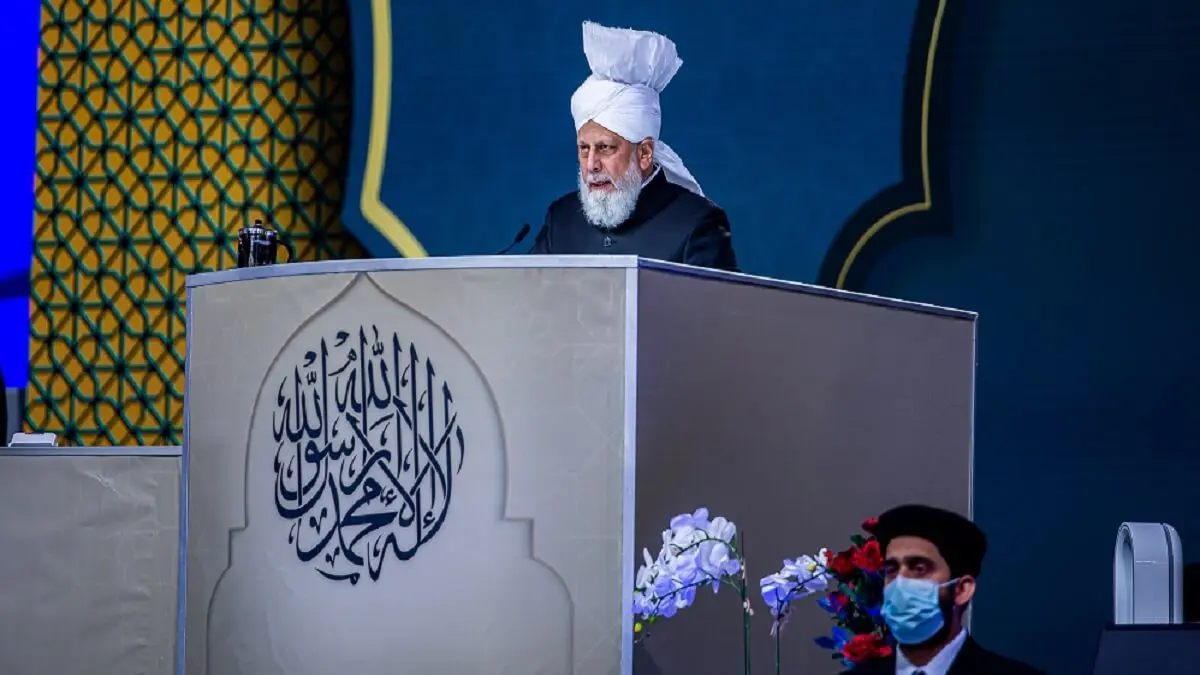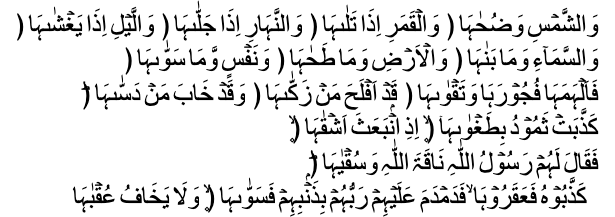The Philosophy of Islamic Teachings (26)

Following the index we proposed in the first installment [https://www.atalayar.com/opinion/qamar-fazal/la-filosofia-de-las-ensenanzas-del-islam/20230425163940184001.html], we continue with the fourth consideration: "The effect of the practical ordinances of the Law in this life and the Hereafter."
The effect of the practical ordinances of the Law in this life and in the Hereafter Life.
We have already stated that the effect of the Divine law, true and perfect, upon the heart of man in this life is to raise him from his savage condition to become a human being, and then, after inculcating in him the high moral qualities, to make him a godly being. One of the effects of the practical ordinances of the Law is that a person who observes the true Law progressively recognises the rights of his fellowmen, and exercises his faculties of equity, benevolence and true compassion, on due occasions. Such a person shares with his fellows, according to their merits, the bounties that God has bestowed upon him - knowledge, understanding, goods and comforts. Like the sun, he sheds his light on all mankind; and like the moon he transmits to others the light he receives from God. He shines like the day, showing others the ways of virtue and goodness, and like the night, he veils their weaknesses and comforts the weary. The godly one, like the sky, protects under his shadow all the needy and refreshes them with the rain of grace at due times. Like the earth, he humbly resigns himself to be trodden underfoot for the well-being of others and makes them come to him to grant them security, offering them various spiritual fruits. In this way, he who obeys the perfect Law fulfils his obligations towards God and also towards his fellow human beings to the utmost. He submits himself totally to the will of God, and becomes the true servant of His creatures. This is the effect of the practical ordinances of the law upon human life in this world.
Their effect in the next life is that a person who fully obeys these ordinances will contemplate his spiritual relationship with God as a manifest reality. The services he did for the love of God to God's creatures, stimulated by his faith and his desire to perform good deeds, will be manifest to them in the trees and rivers of paradise.
In this context, the Exalted God says:

That is, we call to witness the sun and its light; and we call to witness the moon when it follows the sun and gets its light from it and transmits it to the people; and we call to witness the day when it manifests the light of the sun and shows the ways; and we call to witness the night when it darkens and envelops everything within itself; and we call to witness the sky and the purpose for which it has been created; and we call to witness the earth and the purpose for which it has been spread out as a soil; and we call to witness the human soul and its quality which makes it equal to all these other things; that is to say, all these qualities are dispersed among other bodies which have already been mentioned, all of which are comprised in the soul of the perfect man. As these bodies serve man in various ways, the perfect man performs all that service himself, as I have just stated.
Then he says: "He will be delivered from death and attain salvation who purifies his soul, that is, who serves God and His creatures by his devotion to God, as do the sun and the moon and the earth".
It should be noted that in this context "life" is understood to mean the eternal life that is given to the perfect man. This indicates that the reward for obeying the practical ordinances of the Law will be the eternal life of the world to come, for which the contemplation of God will always serve as sustenance.
It is then stated that he who corrupts his soul, and does not acquire the qualities for which he received the proper faculties, and returns after an impure life, will be ruined and will despair of eternal life. This is illustrated in the incident of Al'lah's camel being torn by a wicked man of the tribe of Samud, who would not allow him to drink from its fountain. This indicates that the soul of man is the camel of God, on which He rides; that is, the heart of man is the place of Divine manifestations. The water that the camel drinks is the love and understanding of God that sustains him. When the Samudis unharnessed the camel of God, and did not allow it to drink, they suffered the punishment of God, and God did not even attend to the welfare of His subordinates. So shall he be ruined who corrupts his soul, and does not wish to perfect it, and denies it spiritual nourishment (91:2-16).
The philosophy of oaths in the Holy Quran.
There is a profound philosophy in the oaths of God by the sun and the moon, etc. The antagonists of Islam, due to their ignorance, criticise God for swearing by created things. As their intelligence is not celestial but earthly, they are incapable of appreciating true perceptions. The object of swearing is to adduce testimony in support of one's claim. A person who has no witness in favour of his petition swears by God, because He knows everything, and He is the first witness in all cases. Such a person presents the testimony of God by swearing by Him, knowing that the truthfulness of his statement will be confirmed by the fact that God will not punish him after swearing. Therefore, it is not permissible for a person to swear by a created thing, since no created thing knows the unknown, nor can He punish the one who swears falsely.
In these verses, God's oaths by various phenomena are distinct from the oaths of a person. There are two types of Divine manifestations. First there are obvious manifestations, about which there is no controversy. Secondly there are Divine manifestations by deduction, which can be the subject of conflict and equivocation.
In swearing by self-evident phenomena, the purpose of the Exalted God is to establish, by His testimony, His deductive manifestations.
It is evident that the sun and the moon, the day and the night, and the sky and the earth, possess the respective characteristics already mentioned, and yet not everyone recognises the characteristics of the human soul. God presents as testimony His self-evident manifestations for the purpose of explaining His deductive manifestations. It is as if He said: "If ye are in doubt as to the qualities possessed by the human soul, behold the sun and the moon and the other phenomena mentioned, which evidently possess such qualities. You know that man is a microcosm in which everything in the universe is represented on a small scale. If the great bodies of the macrocosm possess these qualities, and employ them in the service of God's creatures, is it possible that man, superior to all these bodies, should not also possess these qualities? It is not possible. Like the sun, man possesses the light of science and reason, and with this light he illuminates the world. Like the moon, man receives the light of Divine visions and revelations and transmits them to others who have not yet reached the highest stage of human progress. How can you say, then, that the gift of prophecy is a false notion, and that the prophetic gift, the Divine Laws and the Holy Scriptures are but impostures and evidence of the selfishness of certain human beings? You have observed that at dawn all roads are illumined, and the mountains and valleys become visible. In the same way, the perfect man is the day of spiritual light. His appearance makes the various paths visible. He points out the good way, for he is the shining day of truth and virtue. In like manner you have observed how the night welcomes the weary, and how the husbandmen, after toiling during the day, rest from their labours under the protection of the night. The night also covers all their defects and imperfections. In the same way, the perfect servants of God come to comfort the world, and those who receive revelations relieve the wise from their mammoth efforts. Through these people, the enormous problems of perception are easily solved.
(lpbD) - peace and blessings of God be upon him.
(We will continue in the 27th installment to further develop this topic on "The Philosophy of Oath in the Holy Quran").

